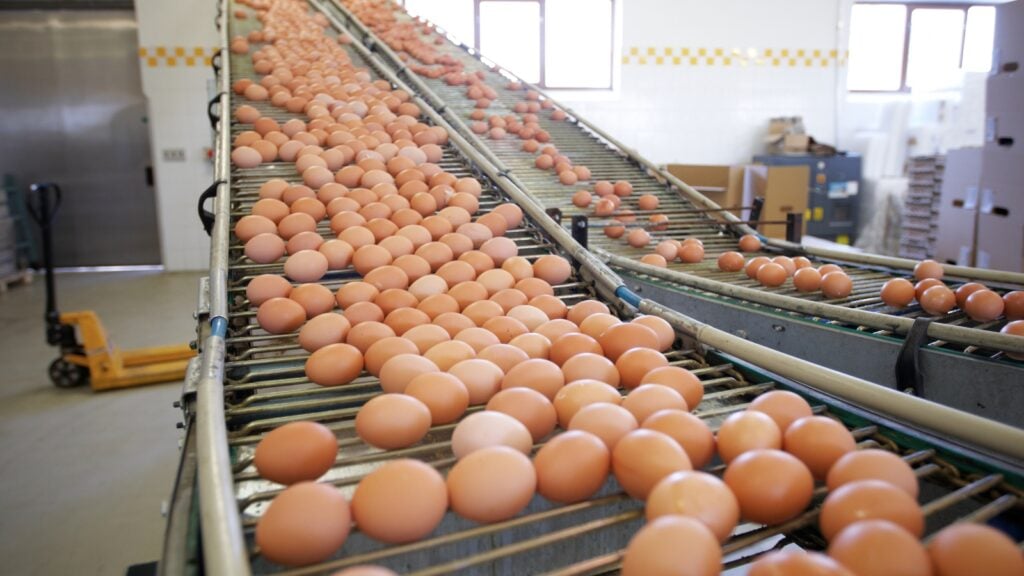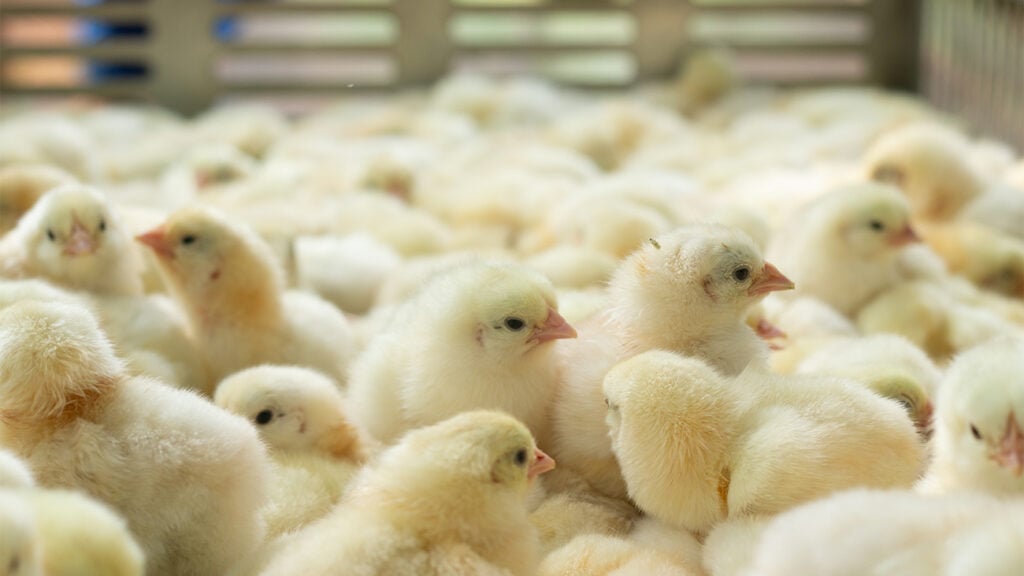Last year, we reported that Germany had moved a step closer to banning the mass culling of male chicks. The country’s Cabinet put forward a draft law prohibiting the controversial practice.
Now, we can report that it has become enshrined in law – as part of the Animal Welfare Act. This came into effect on January 1, 2022.
Avoiding ‘senseless’ killings
Humane Society International/Germany greeted the move.
It “marks a huge and welcome step in the right direction to avoid such senseless killing,” the animal advocacy organization said in a statement sent to PBN.
A spokesperson added: “The culling of chicks in the egg industry has for too long been a very ugly, largely hidden practice where these living, feeling baby birds are discarded like trash into massive grinders on the first day of their lives.”
“It’s a huge moral issue not simply in terms of the suffering of these chicks, but also because it highlights animal agriculture’s many inefficiencies.
“…The making of this new law is a great example of how we can reduce animal suffering by changing a common agriculture practice.
“Another great way we can do this is by choosing to eat more plant-based foods, and reducing or replacing eggs in our diet.
According to The Guardian, agriculture minister Julia Klöckner marked the move “a significant step forward for animal welfare.”
She added: “We have invested millions of euros in alternatives, bringing animal welfare and economic efficiency together on German soil.”
What happens in the egg industry
Around the world, millions of male chicks are killed shortly after they are hatched. This is because they cannot lay eggs grow meat as fast as female chickens, and are deemed less economically viable as a result.
It is reported that in Germany alone, an estimated 45 million male chicks are culled annually. However, technology that can now determine the sex of a chick aims to halt the practice.
Within the global egg industry, sex identification takes place on the very first day of the chick’s life. Then, male chicks are separated and culled when they are just a few days old.
This is because they can’t lay eggs or grow meat as fast as female chickens, and are deemed less economically viable as a result.

But as part of the new law in Germany, the sex identification of embryos will only be permitted up to day six. This comes into effect from 2024. These measures have been imposed after research established that chickens are sentient after their sixth day in the egg.
However, technology does not yet exist to determine the sex before day nine. But the German government is funding research in two different procedures to achieve determination at an earlier stage.
One German company has developed a technique that uses a laser to make a tiny hole and then extract liquid from a fertilized egg.
Then, it can test the hormones and determine the sex of the chicken before it is born. According to the Federal Ministry of Food and Agriculture, the chicks are unaware of this procedure.
Other countries imploring bans
Germany is not the only country to move away from male chick culling. Two years ago, France also announced it would ban the practice. Similarly, Switzerland has banned the shredding of live chicks.
“It’s time to end the shredding of chicks,” said Agriculture Minister Didier Guillaume as he announced the measures, which also included ending the castration of piglets without anesthesia.
“France and Germany should be the European motor to advance on this issue. Nothing will be like it was before.”
An ‘awful practice’
According to The Vegan Society, the only way to stop chicks from suffering is to boycott animal products.
Spokesperson Dominika Piasecka told PBN: “Gassing and shredding someone to death both sound like the most horrendous ways to die.
“And, by buying and consuming eggs, customers are directly contributing to this awful practice.
“It happens across the egg industry, regardless of the eggs being marketed as cage-free, organic or so-called ‘humane’. Veganism rejects the notion of animals being seen as commodities and animal products being seen as food.
“As vegan advocates, we need to change the way people think about eating animal products and we can only do this by rejecting all animal products, from any source, in any form.”
This article was originally published on 22/01/21. It was updated on 01/02/22 to confirm that the draft law has been approved and is now in effect. This article was further updated on 03/02/22 to make this information clearer.







